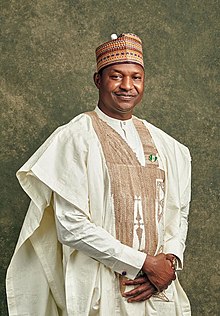By Andy Okoh
Dr. Umar Jibrilu Gwandu, Special Assistant on Media and Public Relations, to the Attorney General of the Federation and Minister of Justice (AGF), Abubakar Malami SAN, has questioned the rationale behind the Electoral Act Section 84(12) 2022 banning political appointees from voting or being voted for durng party congresses but allowing serving legislators to enjoy the privilege.
Dr. Gwandu in a WhatsApp message he circulated, maintained that the new Electoral Law is discriminatory since public office holders like Commissioners or Ministers are to resign while allowing members of the National Assembly to vote or be voted for.
His boss had preferred same arguments, before the hasty judgment from a Federal High Court, Umuahia, gave a verdict lending support to the arguments.
Gwandu maintained that no law should violate the rights of Nigerians who are in public offices to engage in partisan politics whether appointed or elected.
According to Malami’s spokesperson: “Section 84 (12) of the Electoral Act says ‘No political appointee at any level shall be voting delegate or be voted for at the Convention or Congress of any political party for the purpose of the nomination of candidates for any election’.
“This section of the act contradicts the Nigerian Constitution which allows appointees to vote or be voted for as long as they resign their positions at least 30 days to the election.
“This is why Justice Evelyn Anyadike of the Federal High Court, Umuahia, had on March 18 held that ‘Section 84(12) of the Electoral Act,2022 cannot validly and constitutionally limit, remove, abrogate, disenfranchise, disqualify and oust the constitutional right or eligibility of any political appointee, political or public office holder to vote or be voted for at any convention or congress of any political party for the purposes of nomination of such person or candidate for any election where such person has ‘resigned, withdrawn, or retired’ from the said political or public office, at least 30 days before the date of the election’.
“The judge had nullified the section and ordered the Office of the Attorney- General of the Federation to delete it from the act but the National Assembly has vowed to appeal the judgment, accusing the judiciary of interfering with the function of the legislature.”
Analysts had punctured the speed at which the judgment was arrived at and the fact that neither the plaintiff nor the judge asked that relevant parties, including the National Assembly or affected political office holders be joined in the suit before judgment was delivered, raising speculation as to the motives behind the judgment.
It was claimed that the judgment was hastily delivered to pave way for political appointees to be part of the National Conventiin of the ring All Progressives Congress (APC), which took place last Saturday.


















